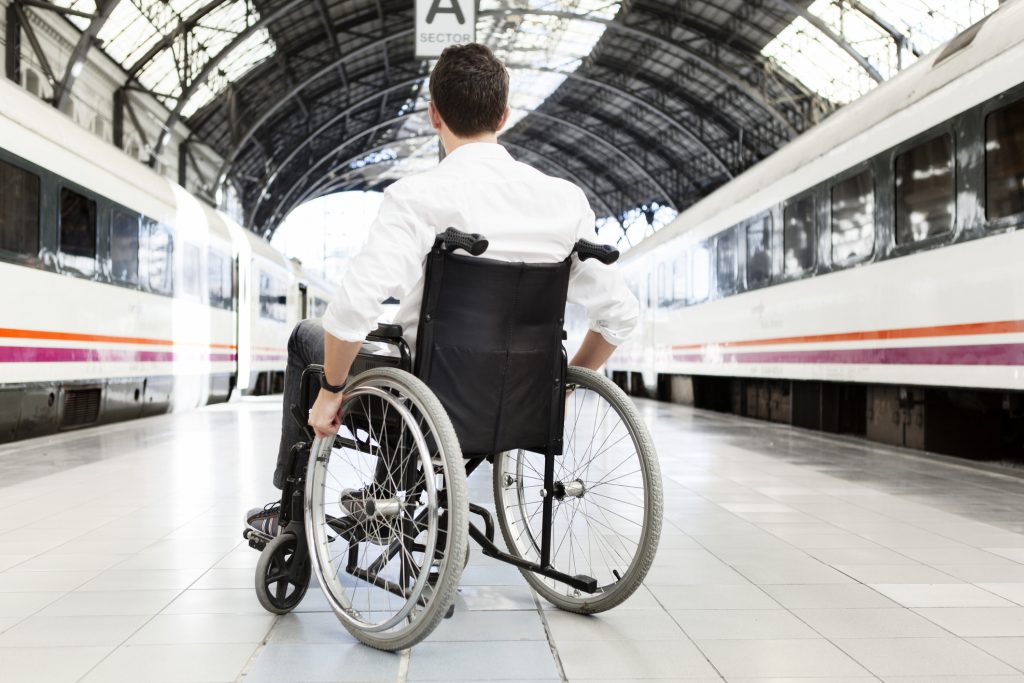Are the playing fields level for wheelchair users in Medway?

Man on wheel chair waiting for the train
There are approximately 1.2 million people that use a wheelchair in the UK, and many of them use public transport as a way of travelling.
But has enough been done to make sure that the transport is accessible for those in a wheelchair, or is more action required to meet the guidelines set out in the 2010 Equality Act?
Priority seating, disabled booths and ramp access are becoming more readily available with Britain’s public transport.
Buses allow space for a wheelchair, and trains can come with a staff member to help board and dismount a carriage. Yet there still seems to be room for improvement.
Derek Lynch and his wife Jennifer both use a wheelchair, and have relied on public transport in the past.
But when they have tried travelling together by bus, they have been told only one of them can board.
Speaking about the issue, Derek said: “Jennifer is also in a wheelchair, so if we want to travel out together, on the bus, we can’t.
“It will only take one wheelchair, although often there is space for two wheelchairs on either side of the bus itself.”
In response, Arriva have said that it is the ‘bus manufacturers … who implement the design and production of buses and vehicles.’
Train companies have put systems in place to allow those in wheelchairs to use their services. A booking system enables there to be a staff member to help them on and off the carriage.
There are limitations, though, which aren’t helped by the recent rail strikes.
Jill Lovell is a wheelchair user who often uses trains for travel. She said: “It’s imperative for the train travel that if you’re getting off at a station between the beginning and the end destination that you’re off quickly so the train doesn’t lose time.
Ms Lovell does sympathise with the rail workers who have decided to take industrial action, but has concerns about the impact on those with disabilities using the trains.
She said: “I’ve got a lot of sympathy for the train strikes at the moment, for the workers, because they aren’t really striking for pay increases, it’s the whole conditions of service.
“One of the biggest things they were fighting for is to maintain the number of staff who work.
“For example, the people who assist people to get on and off the trains may be the first service to be cut.”
The equality act of 2010 states that providers of goods, services and facilities have a duty to make reasonable adjustments in order to avoid a disabled person being placed at a ‘substantial disadvantage’ compared with non-disabled people when accessing services and facilities.
But if Jill and Derek are anything to go by, there’s still a way to go to eliminate the ‘substantial disadvantage’ faced by those with a disability.







